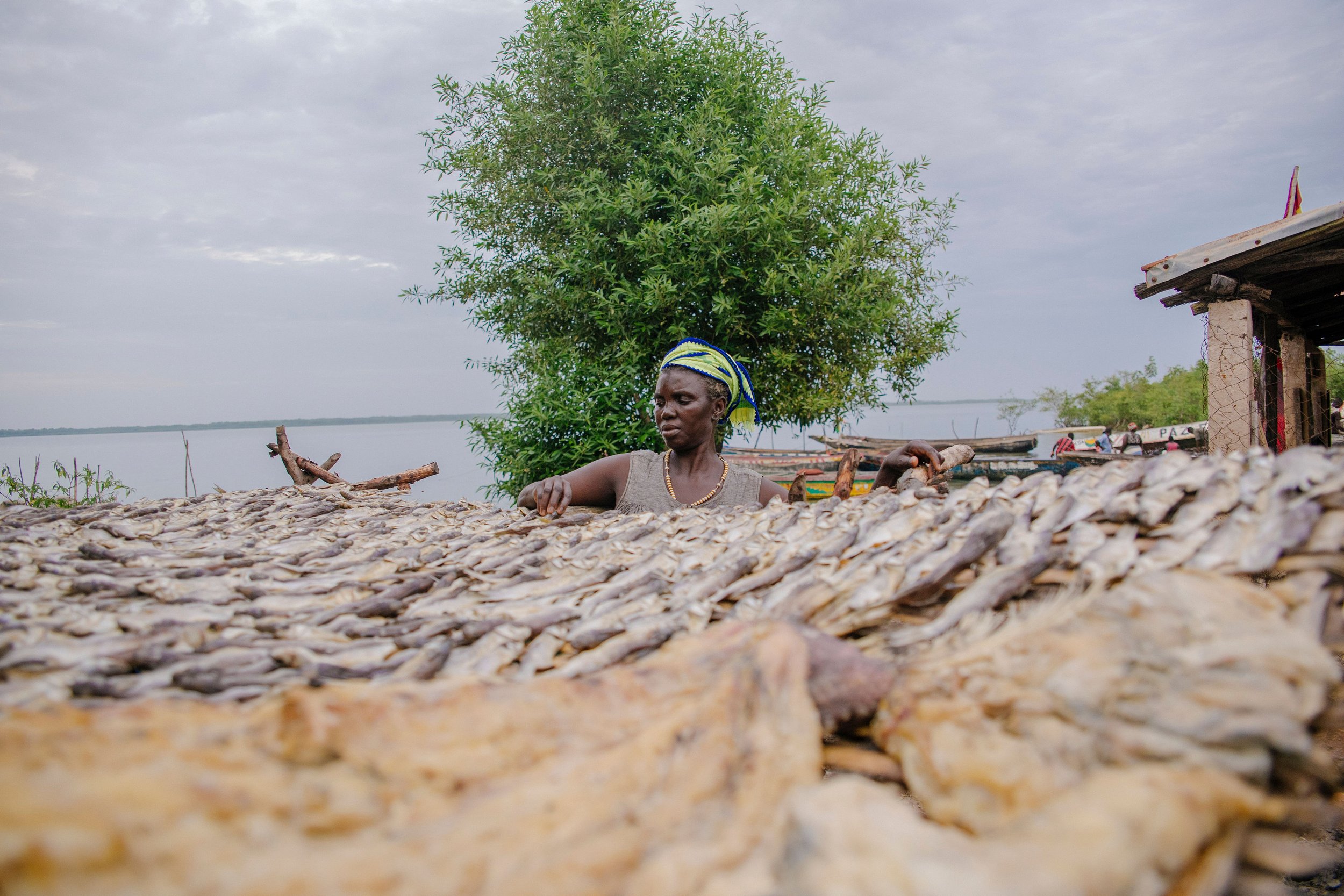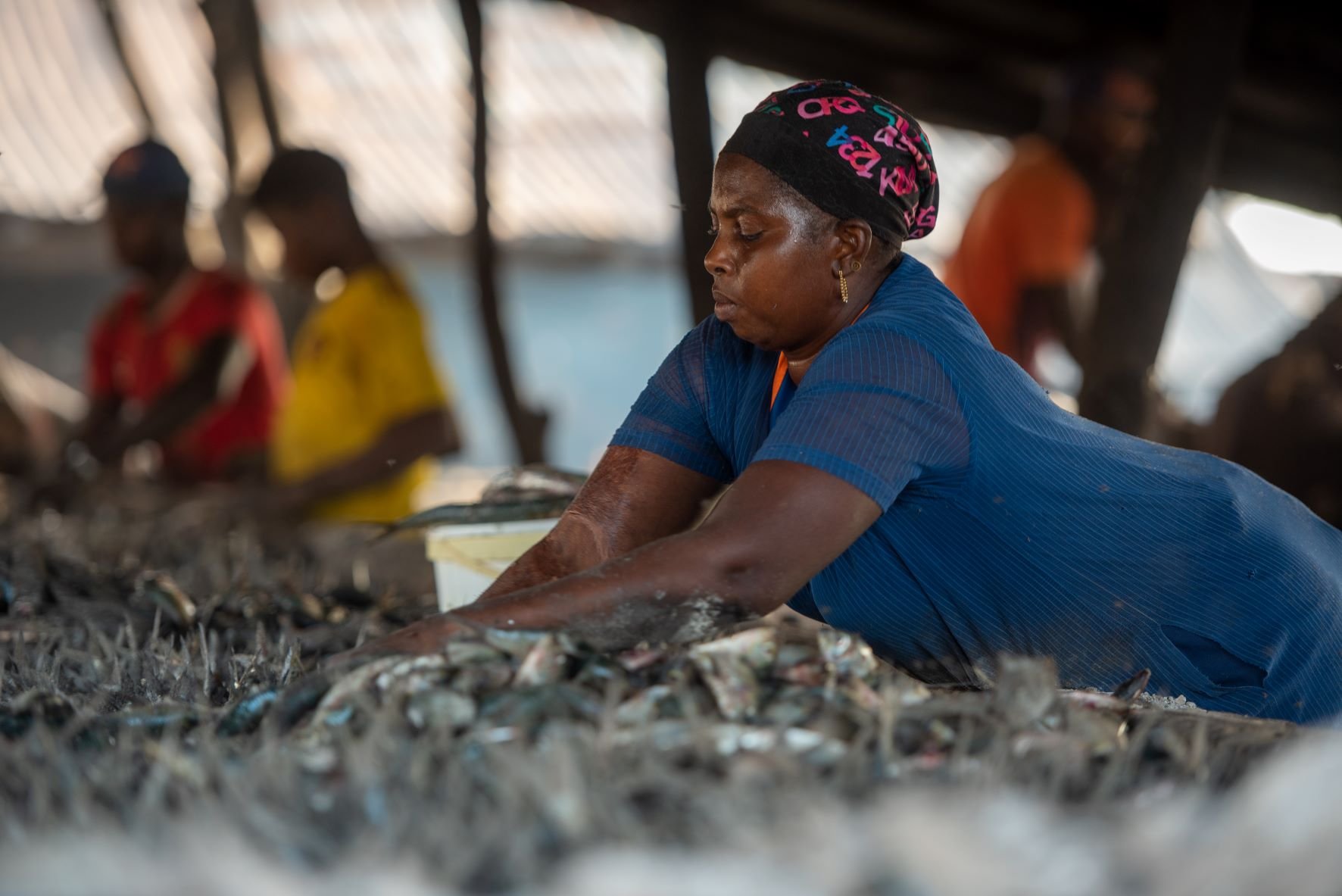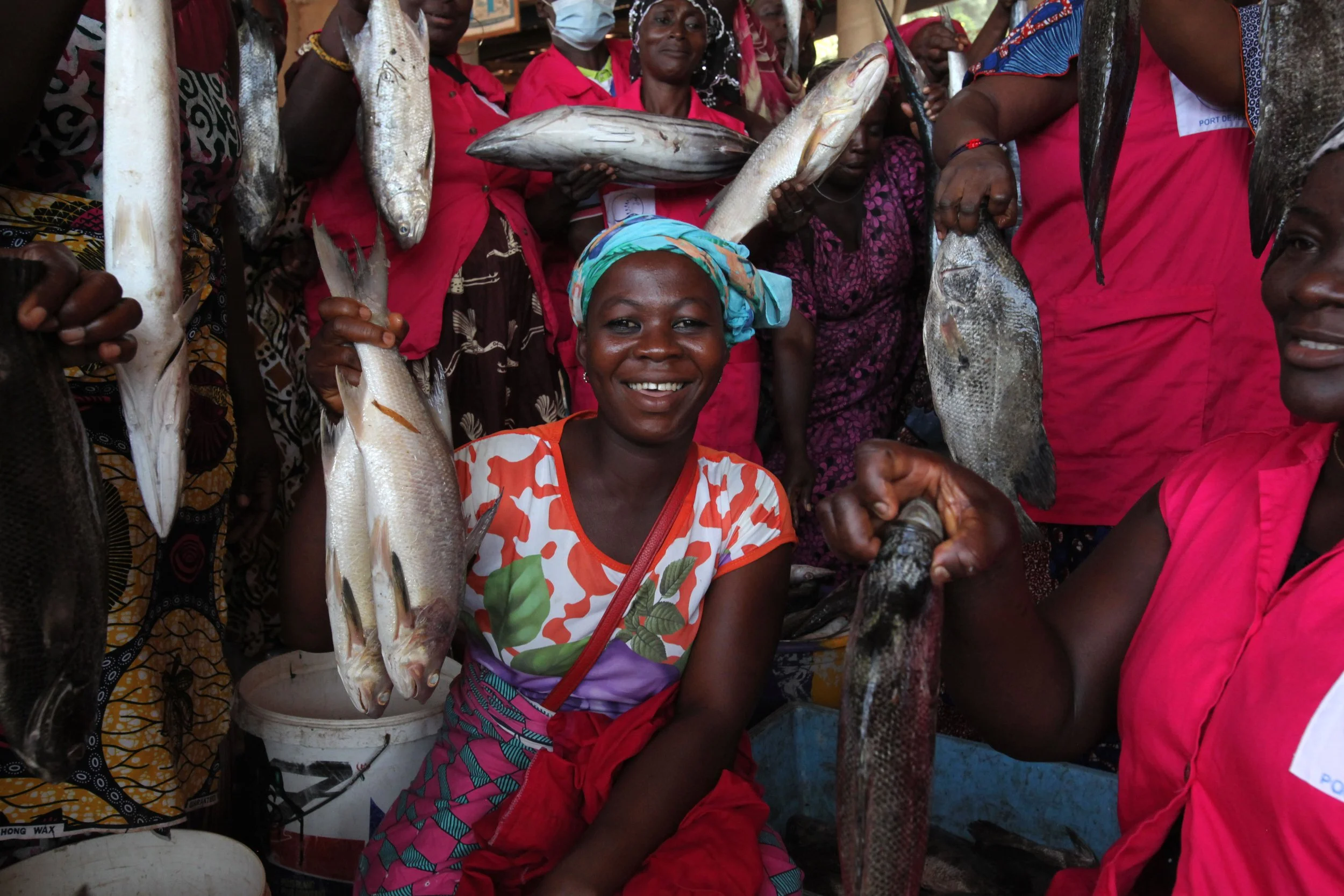At the beginning of February, the Indian Ocean Tuna Commission (IOTC) Contracting Parties, meeting in Kenya, adopted Conservation and Management Measures on both anchored and drifting Fish Aggregating Devices (FADs). These measures were welcomed by many Indian Ocean nations that consider FADs one of the main reasons of tuna overfishing in the region. An article by Beatrice Gorez and Hélène Bours.
Will a "CFP tomorrow" support sustainable artisanal fisheries in Africa?
PRESS RELEASE: On 21 February, the Commission presented several measures to improve the sustainability of the EU fisheries and aquaculture sector. It includes four elements: Energy Transition, an Action Plan to protect and restore marine ecosystems, a Communication on the "common fisheries policy today and tomorrow and a Report on the Common Market Organisation for fishery and aquaculture products. How will these impact African small-scale fishing communities?
Intensive farming of carnivorous fish relying on West Africa fishmeal must be stopped
The FAO Guidelines for Sustainable Aquaculture can be improved by including the considerations of stakeholders that are currently facing the negative impacts of unsustainable aquaculture, and by openly addressing issues like the interactions with small scale fisheries, competing for coastal space and for access to resources like small pelagics in West Africa.
The UN trumpets the importance of small-scale fisheries, but keeps mum about the blue threats it faces
A year for artisanal fishers is not enough
2022, the International Year of Artisanal Fisheries and Aquaculture (IYAFA), has been a pivotal year for small-scale fisheries, meeting the UN’s goal of raising awareness about the role they play in employment, food security, nutrition, livelihoods, culture, and coastal communities well-being. Beyond recognition, there is an urgent need for concrete action in securing their access to marine resources and markets, as promised by States under Sustainable Development Goal 14.b.
Financing the 30x30 agenda for the Oceans: Debt for Nature swaps should be rejected
Joint statement - In the delivering on 30x30 and financing conservation, debt for nature swaps are gaining momentum. However, debt swaps should be rejected as they lack transparency and give undue power to foreign organisations over the policies of marine resources management of developing and small-island states.
Despite what FAO says, access to marine resources and markets is not yet secured for small-scale fisheries
A recent report assessing the progress made on food and agriculture-related Sustainable Development Goals glosses over the fact that around the globe, men and women in the artisanal fisheries value chain still face incredible hurdles in seeing their access rights respected. IYAFA has catalysed recognition for small-scale fisheries important roles in food security and livelihoods, but now action on the ground and concrete results are needed.
UN Ocean Conference political declaration: where are the fishers?
The final declaration fails to appropriately acknowledge the role and importance of the biggest group of users of the ocean, - the artisanal fishers-, while it encourages private-public partnerships, capital market instruments and other forms of financing, that might end up destroying coastal fishing communities.
Small-scale fishers call for global leaders to act now on oceans at UN Ocean Conference
JOINT PRESS RELEASE: Small-scale fisheries are small in name only. Half a billion people – 7% of the global population – are at least partly dependent on them for food, employment and income. They are the largest group of ocean users, have contributed the least to the ocean emergency, and are among the most affected by it. Yet their needs, roles and rights are often ignored, and they are generally sidelined or excluded from major policy discussions that directly affect their lives and livelihoods.
West Africa: PESCAO should be more effective and attentive to artisanal fisheries
The PESCAO programme for the improvement of fisheries governance in West Africa, financed by the EU from the 11th EDF Regional funds, started in June 2017 and will end in June 2024. After nearly 4 years, an evaluation is underway to assess the results obtained and to see how to improve its implementation, in a context where the countries of the ECOWAS region are focusing on the development of a blue economy strategy.
Making fish worth its weight in gold: granting better access to markets for women in African artisanal fisheries
EU-Mauritania SFPA: The requests of the Mauritanian artisanal fisheries and civil society
This week the European Parliament is discussing a first draft by rapporteur Izaskun Bilbao on the Sustainable Fisheries Partnership Agreement between the European Union and Mauritania. This agreement is of great interest to the EU fisheries sector and is the most expensive of all fisheries agreements between the EU and third countries.
How will the EU contribute to support sustainable artisanal fisheries in Africa through its International Partnerships
The new EU regional programming for Africa gives fisheries and oceans greater importance. It also focuses more on small-scale fisheries stakeholders and civil society organisations, which is an opportunity for them to make their voice heard. This article covers a summary of the 2014-2020 and the ongoing 2021-2027 programming, calls for more policy coherence and recommends increased participation of stakeholders for greater and efficient use of the EU funding.
Joint statement - European and African decision-makers should join forces to support sustainable artisanal fisheries in Africa
In view of the summit that will bring together the leaders of the European Union and the African Union in Brussels on 17th and 18th February 2022 and in the context of the International Year of Artisanal Fisheries and Aquaculture (IYAFA), six civil society and professional organisations call the EU and AU to take concrete action in three key areas. Click on the link to read more.
The new EU-Mauritania agreement: towards a sustainable management of small pelagics in West Africa?
In this third article in the series on fisheries in Mauritania, the authors review the state of overexploitation of small pelagic stocks, look at the ways the EU SFPA seeks to address the issue and come back to the demand of several stakeholders for a regional fisheries management organisation for shared small pelagic stocks.
Happy International Year of Artisanal Fisheries!
Understanding the conservation finance industry
More aquaculture to feed the world? Not at the expense of African fishing communities
Nowadays, aquaculture provides more people with food than capture fisheries, and the tendency is growing. The accompanying demand for fishmeal and fishoil, driven mainly by China, is increasingly being covered by West African fishing. However, putting the blame for the threat to fish stocks in the region solely on China’s appetite for seafood falls a little short.





















